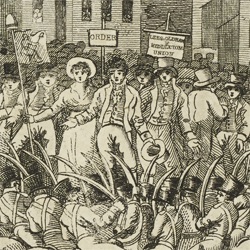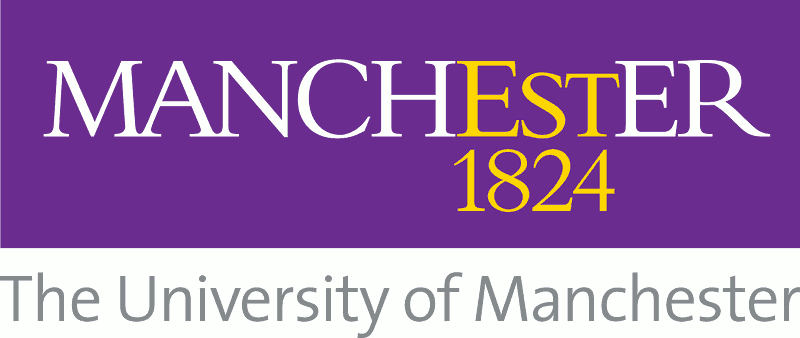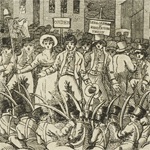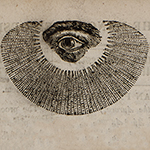Peterloo

On 16 August 1819, a radical meeting of around 60,000 people at St. Peter’s Field, Manchester was violently suppressed by the Government. 18 people died from injuries received that afternoon and up to 700 more were injured. Spectators were brutally cut down by mounted cavalry wielding sabres, or beaten by the truncheons of special constables. Others were trampled by horses and panicking crowds. As news of the traumatic events circulated, it acquired the satirical name ‘Peterloo’ – a reference to the bloody battle of Waterloo, only four years previously.
The University of Manchester Library has digitised a unique collection of documents, books and newspapers relating to the Peterloo Massacre. These include the Wadsworth Papers, a collection of handbills, placards and handwritten letters gathered by the Rev. William Robert Hay (1761-1839). Rev. Hay was one of the ten magistrates present who ordered mounted soldiers into a crowded field to arrest Henry Hunt on 16 August 1819. He was a firm loyalist who assiduously collected anything that smacked of sedition.
Various digitised maps and plans of the site give a sense of where St Peter’s Field was situated in relation to buildings present today. The collection also includes a full run of the radical newspaper, the Manchester Observer (1818-1822), whose editor, James Wroe, was closely involved in organising the ill-fated meeting. Until it folded the Observer held the authorities to account, collecting eye-witness accounts in painstaking detail. It remains a key resource for researchers.
Another highlight is the Peterloo Relief Fund book. Recognised by UNESCO on the UK Memory of the World Register, it lists the names, addresses, occupations and injuries of those caught up in the massacre and the amount of money paid to them. Our Peterloo collection also includes a pamphlet published by William Hone, called ‘The Manchester Sufferers’ which includes a printed list of known Peterloo victims. Both the printed and manuscript injury books are a poignant reminder of the many lives that were blighted by Peterloo. They challenge the magistrate’s version of events which seriously downplayed the number of dead and injured and tried to pass off the event as a riot.
Material created by the John Rylands Research Institute and Library and The University of Manchester during the bicentenary commemorations will be added to this collection. This will include sound recordings, publicity, exhibition material and photographs of events held during the summer of 2019.
While the University of Manchester has the most extensive textual resources on the Peterloo Massacre many other archives, libraries and museums in the greater Manchester area have significant Peterloo collections. The best place to see an overview is at the Peterloo 1819 webpage established by the Manchester Histories Festival in 2019. This site also forms an ongoing legacy of the bicentenary commemoration.
For a detailed description of the Manchester Observer newspaper see article by Robert Poole, ‘The Manchester Observer: Biography of a Radical Newspaper’ Bulletin of the John Rylands Library, 95:1 (Spring 2019), 30–122, which can be accessed here.




